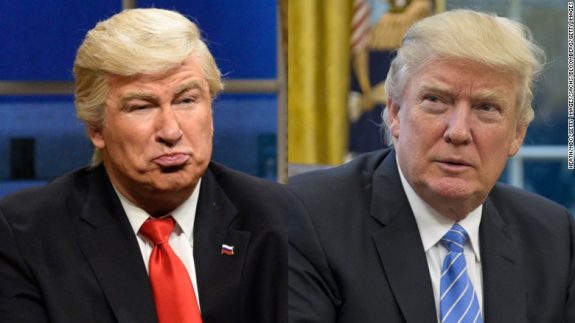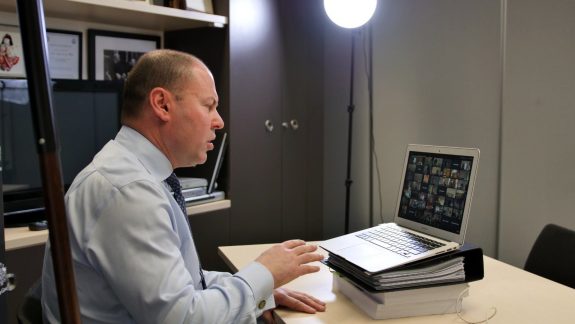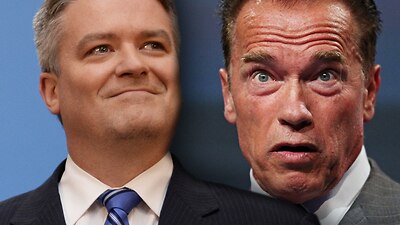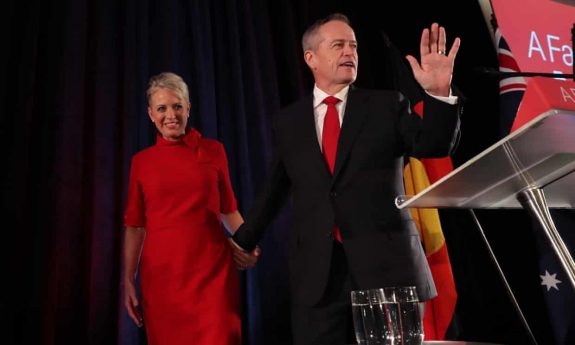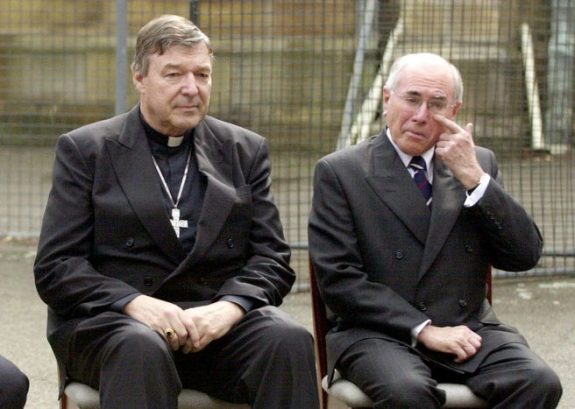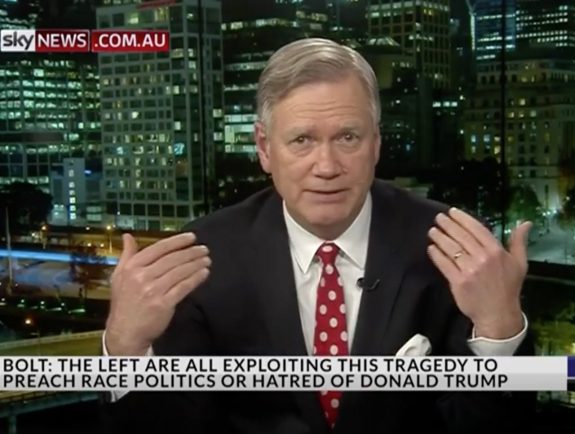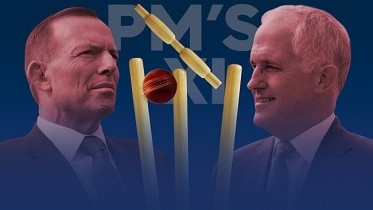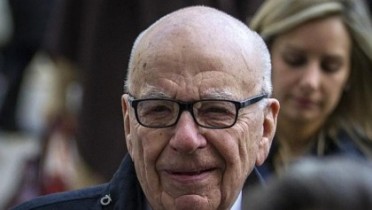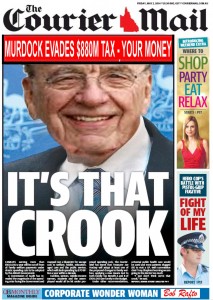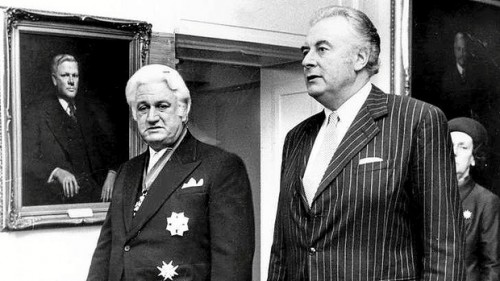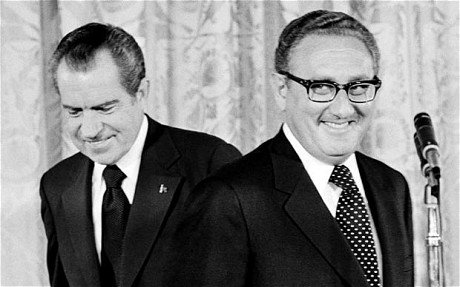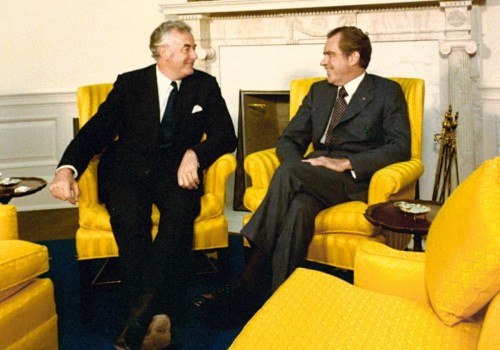Who was really behind the dismissal of the Whitlam Government? On this, the 40th anniversary of the dismissal, Dr George Venturini* critically examines the giddy rise of Gough Whitlam, his reforms, his cold relationship with the Nixon Administration, the Khemlani loan scandal, the dismissal of the Whitlam Government on 11th November, 1975 and the questions that have lingered since. This is the final chapter of our four part series.
The economy against headwinds
By the end of 1974, early 1975, it was clear that the economy was ‘going bung’.
Any appraisal of the Whitlam Government’s economic performance should take account of the global economic environment in the mid 1970s: the Bretton-Woods monetary system had come to an end in 1971; in October 1973 the O.P.E.C. cartel doubled world oil prices and the following oil crisis had plunged the United States, Britain and a number of other ‘western’ economies into recession. Inflation worldwide reached double digits.
These events had a profound effect on the Australian economy, and this period marked the end of the post-war boom that Australia had enjoyed for more than two decades.
The government was still popular as it began its second year with reforms and new spending on education, health, urban development and the environment. The economy had grown by 6 per cent in 1973, with the private sector growing even faster. House prices were soaring but inflation was out of control.
In 1973 average earnings had gone up 15.3 per cent, as the government supported big wage rises. Consumer prices rose 13.2 per cent, as global food shortages increased food prices.
Only a year before Labor-with-Whitlam had captured the House of Representatives – sufficiently if not handsomely. It had seemed better equipped than the dessicated Coalition parties to meet the mood of anxiety and concern in the constituencies – anxiety and concern about the muddled, bemused on-credit affluence where television sets and vehicles are easier to obtain than good education, homes, sewerage, adequate medical treatment or a comfortable old age; where the physical environment is scarred, polluted and poisoned in frantic pursuit of a higher standard of living; where corporations headquartered overseas are the biggest beneficiaries of an expanding growth rate.
What Whitlam had proposed was an apparent solution to these contradictions with schemes of economic management which would, on the one hand, satisfy the hankering of the business community for ‘a degree of stability and predictability’ in an atmosphere of mounting union militancy and heightened political confrontation, yet on the other hand, correct obviously corrosive inequalities of wealth, opportunity, effort, reward and enjoyment.
This nationalist, consensual approach to policy-making, prudentially skirting any suggestion of broad ‘socialist reconstruction’, was moderate enough to gain the approval of influential figures in the financial-mercantile and defence-foreign affairs sectors of the Establishment.
For example, Rupert Murdoch’s newspapers had favoured Labor. Probably even the most obdurate opposition people could see that, if Labor continued to be shouldered out of the Treasury benches, the mythology surrounding ‘parliamentary democracy’ – especially the notion that the Opposition is always an alternative Government – could no longer be sustained.
But the Establishment’s support dwindled swiftly and drastically, however, despite the fact that Labor in government circumspectly pursued its reforms in classic social-democratic fashion, within the bounds and according to most rules of capitalist enterprise.
In Australia, a vast, neuter-minded ‘middle class’ was then – and by-the-way has remained – still cocooned in commercial consumerism. It was then – and has remained – far from ready for either the stringencies of liberties or radical rebirth. In the Australian electorate at large there is, indeed, a soft underbelly of complacency and a constipated core of so-called ‘conservatism’.
That Whitlam had tried to introduce rational planning and a sense of social priorities into the Australian economy was consistently undervalued or ignored in much of the public commentary, with its predilection for cant, hypocrisy and self-delusion.
In practical parliamentary terms, a newly aroused ruling class distrust meant that key features of Whitlam’s ‘Program’ were obstructed, deferred or discarded in the anti-Labor Senate, while the implementation of other executive decisions was frustrated, deflected or disbarred in non-Labor states.
The signs of crisis began with unemployment moving rapidly from 2 per cent towards 5 per cent. A generation of ‘jobs for everyone was over’.
1974 was the year when wages and prices soared out of control. Consumer prices rose 16 per cent, yet wages topped that, rising 28 per cent as powerful unions came back for a second or even a third round of pay rises.
The current account slid into deficit. From a surplus of 1.5 per cent of Gross Domestic Product in mid-1973, the balance of Australia’s transactions with the world crashed to a deficit of 3.2 per cent by the end of the 1974.
Profits collapsed, industrial disputes escalated, and a housing boom gave way to the steepest bust on record.
The Commonwealth budget exploded. As the Whitlam Government pressed on with big-spending reforms despite Treasury pleas for restraint, Commonwealth spending surged 46 per cent in 1974-75. The year before it had been 20 per cent.
1974 was the year when Treasury thought it had lost its influence on government decision-making. There is, of course, a different view: John Menadue, a very respectable head of the prime minister’s department from late ’74, bluntly accused Treasury of disloyalty.
The Whitlam Government’s greatest working problem was that its members constituted a minority in the Senate. Otherwise, it was inhibited by the limitations of a ‘colonial’ Constitution and outmanoeuvred by non-Labor states. There had been accumulating a long list of bills amended or rejected by the Liberal, Country Party and Democratic Labor Party – the latter a ‘theologically’ anti-Labor ‘coda’ of a clerico-corporative type.
Among those bills were one which sought to set up a comprehensive national health service, to be financed from taxation and not dissimilar from that established about a quarter of a century earlier in New Zealand and in Britain – rejected; another bill aimed at making the electoral system more democratic by eliminating disparities of up to 20 per cent between electorates – rejected.
One more bill was much more important, not so much because like the other two it had been promised in Whitlam’s policy speech – it was therefore a ‘mandating’ bill, but because it sought to establish a minerals and energy authority with power to exploit oil and other minerals in the national interest. Dark side remittance men and locally-grown conservatives of all hues naturally saw this as an attack on the sacred principle of private enterprise. And this was essentially foreigner. Such a bill would unquestionably attract the interest and hostility of corporations from the Great and Powerful Friend and other holders of huge interests in that wealth soundly and securely protected in and around ‘The City’. Minerals and energy were “the most profitable and significant of Australia’s industries and resources [which were] under foreign control … It is the strongest and richest of our own industries and services which have been bought up from overseas … And Whitlam had added: “It’s time to stop the great takeover of Australia. But more important, it’s time to start buying Australia back. A Labor Government will enable Australia and ordinary Australians to take part in the ownership, development and use of Australian industries and resources”.
After its defeat in the 1972 general election, the Liberal Party had lost no time in dismissing McMahon from its leadership. However, his successor, Mr. Billy Snedden, at first seemed hardly more impressive. He seemed to share with most other Opposition politicians the belief that the electorate wanted them back on the Treasury benches. To a degree they appeared to believe their own rhetoric, as when they declared that the Whitlam Government had antagonised the United States and other old friends by recognising China and withdrawing the troops from Vietnam. But since the United States was itself desperately engaged in the same manoeuvres, not many Australians seemed impressed.
As Russel Ward wrote in the distance of time: “So in April 1974 Her Australian Majesty’s loyal opposition behaved more like a gang of fascist thugs than responsible politician in a democratic country. They threatened to use their Senate majority to withhold supply to the government”.
It was a particularly dastardly act. Whitlam was virtually forced to seek a double dissolution.
On 18 May 1974 the Whitlam Government was returned, albeit with a reduced majority (66 to 61) and still no majority in the Senate.
In 1975 Murdoch returned from England, where he had just purchased The News of the World. He came expressly to destroy a government which, three years earlier, he had helped to elect.
Miffed by Whitlam’s failure to reward him for his support in the election and Whitlam’s failure to accept the Murdoch view on how to run the country, he began his ugly, ruthless campaign to bring Whitlam down. It was the most savage attack on an elected government in the history of Australia and is matched only by the daily sensations aimed at destroying Labor’s programs for the future.
Nothing would match the events of 1975. They amounted – in the words of Whitlam – to . . .
A coup conceived in secret and deceit
Here are the dramatis personae:
Kerr
Sir John Robert Kerr, AK, GCMG, GCVO, QC was born in 1914 in Balmain – then a working class suburb of Sydney, the son of a boiler-maker, graduated in law with first class honours from the University of Sydney and was called to the bar in 1938. He became a protégé of Dr. H. V. Evatt, distinguished jurist and future judge of the High Court of Australia.
During the second world war Kerr worked for the Directorate of Research and Civil Affairs, an Australian intelligence organisation. In 1946 he became principal of the Australian School of Pacific Administration and the first Secretary-General of the South Pacific Commission.
Kerr returned to the bar in 1948, specialising in industrial law; he had joined the Australian Labor Party, but after 1955 he left the Party and showed sympathy for the anti-Communist Democratic Labor Party.
During the 1950s he joined the Executive Board of the Association for Cultural Freedom, which was revealed to be an agency of, and financed by, the C.I.A.
A Q.C. in the 1950s, he became in the 1960s one of Sydney’s leading industrial lawyers.
In 1966 Kerr was appointed a judge of the Commonwealth Industrial Court and, later, to several other judicial positions. During this period he turned to more conservatives views; he cultivated a friendship with Sir Garfield Barwick, Menzies’ Attorney-General, who in 1964 was moved to be Chief Justice of the High Court of Australia.
Between 1966 and 1973 Kerr was the first chairman of the Law Association for Asia and the Western Pacific (LawAsia), later to be unmasked as a C.I.A. agency.
Kerr was appointed Chief Justice of New South Wales in 1972.
On 11 July 1974 Kerr was appointed by Queen Elizabeth II as Australian Governor-General, having been nominated by Whitlam on a second choice. Whitlam did not know Kerr well, but trusted the view of some colleagues.
He died in 1991.
Barwick
Sir Garfield Edward John Barwick, AK GCMG QC was born in 1903 in Stanmore – then a slum of inner Sydney, the son of a struggling typesetter, graduated from the University of Sydney with a University Medal in law, and was called to the bar 1927. He knew poverty but spent his life defending wealth – however obtained.
A Q.C. in 1942, he became well known for cases such as the Airlines case, and the Bank Nationalisation case – and always against the Commonwealth Labor Government.
The cold war years found Barwick the preferred advocate in the Menzies Liberal Government’s failed attempt to ban the Communist Party in 1951, and he was also appointed to represent the Australian secret service in the celebrated Petrov Royal Commission of 1954 – the sub-tropical equivalent to the McCarthyite witch-hunts which so pervaded American politics at that time. Barwick was knighted in 1953 for his services to the law.
Barwick was elected to the House of Representatives as a Liberal in 1958, 1961 and 1963. He served as Attorney-General (1958-64) and Minister for External Affairs (1961-64). Menzies dispatched him to the High Court as Chief Justice in 1964. He became the longest serving Chief Justice (1964–81). He also sat as ad hoc judge of the International Court of Justice in 1973-74.
Barwick fame remains attached to several infamous cases on tax avoidance and tax evasion, almost always deciding against the taxation office. Led by Barwick himself in most judgments, the court distinguished between avoidance – legitimately minimising one’s tax obligations and evasion – illegally evading obligations. The decisions effectively nullified the anti-avoidance legislation and led to the proliferation of avoidance schemes in the 1970s, a result which drew much criticism upon the Court.
Barwick thought so much of his lack of bias, even the possible perception of it, as to seat on cases brought to litigation by wealthy corporations in which his own private family company had shares. One such case was that of Mundroola Pty. Ltd., incorporated in 1946, apparently as a means of reducing Barwick’s income tax payments by making over a large sum to his two children.
The matter was first publicly revealed on 18 April 1980. It was then reported in The Australian Financial Review to the effect that the N.S.W. Corporate Affairs Commission had approved plans to strike Mundroola off the register for not lodging annual returns since 1973. Mundroola filed the missing returns six days later. These stated that Barwick had resigned as a director on 31 December 1974. On 26 April 1980 The Age ran an article which detailed how Barwick, without declaring his interest, even a possible conflict of interest, had sat in judgment on cases involving corporations in which Mundroola had shares. On 28 April Senator Gareth Evans gave notice in the Senate that he would next day move that a joint parliamentary committee be appointed to inquire into the Mundroola matter.
The then Prime Minister, Malcolm Fraser, got in first. At 4.15 p.m. on 29 April he produced a letter – dated the previous day – from Barwick absolving himself of all blame. Barwick’s letter said he had no proprietary interest, which was not an issue, in Mundroola. Barwick did not address himself to the question of possible pecuniary interest. He said he could not believe that any fair-minded person would have entertained any doubts about his impartiality in appeal cases. Fraser said no inquiry was needed, or would be granted – and that was that.
More significantly, Barwick advised Governor-General Sir John Kerr on the constitutional legality of dismissing a prime minister who declined to advise an election when unable to obtain passage of supply. This was significant, because Barwick and Whitlam had a history of antipathy dating from the mid-1950s. Further, Whitlam had refused Kerr’s request for permission to consult Barwick, or to act on any advice except his own.
Barwick retired in 1981 and died in 1997.
Fraser
John Malcolm Fraser AC, CH, GCL was born 1930 in affluent Toorak, Victoria, in a family of the squattocracy – naturally to be enriched by speculation and defended in politics. He received private education in Australia and obtained a degree in Philosophy, Politics and Economics at Oxford in 1952.
He was elected to the Australian Parliament in 1955 and appointed to the Prime Minister Holt Cabinet in 1966.
As Minister for the Army he was responsible for the Vietnam war infamous conscription program. Under the new Prime Minister, John Gorton, he became Minister for Education and Science and in 1969 became Minister for Defence during the height of Australia’s involvement in the Vietnam war and the protests against it.
Following a campaign of disloyalty to Gorton he resigned, but was reappointed to he Cabinet by Prime Minister William McMahon. After the defeat in 1972 he became Shadow Minister for Labour under Billy Snedden.
He was disloyal to Snedden, too, replacing him as Leader of the Opposition on 21 March 1975.
On 11 November 1975 he became caretaker Prime Minister as the beneficiary of Sir John Kerr’s coup against Prime Minister Whitlam. He retired in 1983.
Ever since the Liberal Party so moved to the Right that in 2009 Fraser resigned. Having been an ‘Atlantist’ all his life, he went through some form of conversion, publishing in 2014 Dangerous Allies (Melbourne University Press 2014), in which he warned Australia, a somnolent client-state, vassal of capitalist convenience, of the danger of ‘strategic dependence’ on the United States.
He died in 2015.
Australia, with its vast, neuter-minded middle class still cocooned in commercial consumerism, is far from ready for either the stringencies of liberties or radical rebirth.
In the Australian electorate at large there is, indeed, a soft underbelly of complacency and a constipated core of conservatism which almost tipped the Labor Government from office in May 1974.
By March 1975 many Liberal parliamentarians felt that Snedden was doing an inadequate job as Leader of the Opposition, and that Whitlam was dominating him in the House of Representatives.
Malcolm Fraser challenged Snedden for the leadership, and defeated him on 21 March 1975.
At a press conference after winning the leadership, Fraser said:
“The question of supply [bills which are required by the Government to carry on its day-to-day business] – let me deal with it this way. I generally believe if a government is elected to power in the lower House and has the numbers and can maintain the numbers in the lower House, it is entitled to expect that it will govern for the three-year term unless quite extraordinary events intervene … Having said that … if we do make up our minds at some stage that the Government is so reprehensible that an Opposition must use whatever power is available to it, then I’d want to find a situation in which Mr. Whitlam woke up one morning finding the decision had been made and finding that he had been caught with his pants well and truly down” [Emphasis added].
The trigger/pretext that Fraser would use to force the situation was Whitlam’s dismissal of Rex Connor, Minister for Minerals and Energy on 14 October 1975. Whitlam had already dismissed Jim Cairns, Deputy Prime Minister and Treasurer on 2 July 1975. In both cases the ministers had misled Parliament. It was a high offence – no doubt. Whitlam was enforcing the strictest parliamentary standards; lesser men could have tried simpler perhaps even more expedient ways to brazen it out.
It could be regarded as extraordinary. But was it “reprehensible”? In that adjective there was all the haughty-sounding tone of a privileged ‘future leader of the Empire’, educated at schools where – as it turned out recently – the pukka sahib language is spoken as a cover for bastardisation, intimidation and bullying.
An already difficult situation was complicated by parallel events.
On 10 October 1975 the High Court ruled that the act passed at the parliamentary joint sitting of 6 and 7 August 1974 which gave the Australian Capital Territory, A.C.T. and the Northern Territory two senators each was valid. A half-Senate election needed to be held by June 1976; most senators-elect would take their seats on 1 July but the territorial senators, and those filling the seats of two senators whose election was being disputed would have taken their places at once. The ruling meant that it was possible for the A.L.P. to gain a temporary majority in the Senate, at least until 1 July 1976. To do so, the A.L.P. would have had to win the two contested seats, and one seat in each territory, and have the second A.C.T. seat fall either to a Labor candidate or an independent, former Liberal Prime Minister John Gorton, now estranged from his party and sworn never to be in the same room with Fraser.
Had that occurred, Labor would have had an effective 33–31 margin, would have been able to pass supply if that was still an issue, and also could pass electoral redistribution laws – which had been passed by the House, though twice defeated by the Senate – that would give it an advantage at the next election.
In the wake of the High Court ruling, and with the appropriation bills due to be considered by the Senate on 16 October, Fraser was undecided whether to block supply.
On 13 October the Melbourne Herald printed documents in support of Khemlani’s allegation that, contrary to government statements, Rex Connor had never revoked his authority to obtain loans and had been in regular contact with him even into mid-1975.
On the following day, Connor was forced to resign.
Fraser made up his mind to block supply; he convened a shadow cabinet meeting and received the unanimous support of the Coalition frontbench.
The decision was itself another gross breach of convention, a fact which would cause considerable angst within sections of the Liberal Party, including a small but vital number of the senators needed to implement the new course. This became crucial as time went on and the crisis deepened.
At a press conference, Fraser cited the poor state of the economy and the ‘continuing scandals’ as reasons for his decision. Without the passage of fresh appropriations, supply would be exhausted on 30 November.
The Coalition could count on a slim majority of 30–29 in the Senate.
On 16 and 17 October, the Senate, with the unanimous support of the Coalition majority, deferred the appropriation bills. The Coalition took the position that Kerr could dismiss Whitlam if the Government could not secure supply.
The Whitlam Government’s former solicitor-general Bob Ellicott, and then a Liberal member of the House, issued a legal opinion on 16 October stating that the Governor-General had the power to dismiss Whitlam, and should do so forthwith if Whitlam could not state how he would obtain supply.
Ellicott’s opinion was that Whitlam was treating Kerr as if he had no discretion but to follow prime ministerial advice, when in fact the Governor-General could and should dismiss a ministry unable to secure supply. Ellicott stated that Kerr “should ask the Prime Minister if the Government is prepared to advise him to dissolve the House of Representatives and the Senate or the House of Representatives alone as a means of assuring that the disagreement between the two Houses is resolved. If the Prime Minister refuses to do either, it is then open to the Governor-General to dismiss his present Ministers and seek others who are prepared to give him the only proper advice open. This he should proceed to do”.
Ellicott emphasised the importance of “the reserved powers” of the Governor-General to act independently, even against the advice of ministers. That was music to Kerr’s ears and would provide to him a kind of preventive justification. It was certainly reassuring to Kerr, and not what he would deviously brand as ‘bullshit’ in conversation with Whitlam. Kerr seems to have made up his mind as early as September 1975 that he had the power to dismiss the prime minister, and there would have been no race The Palace.
In the colonial fog, the meaning, extent and application of ‘reserved powers’ would be left to sound judgment and moral decision – qualities both conspicuously absent in Kerr’s personality and behaviour.
On 19 October Kerr rang Whitlam, seeking permission to consult with the Chief Justice of the High Court, Sir Garfield Barwick, concerning the crisis. Whitlam advised Kerr not to do so, noting that no Governor-General had consulted with a Chief Justice under similar circumstances since 1914, when Australia was at a much earlier stage of her constitutional development.
On 21 October Kerr phoned Whitlam regarding the Ellicott opinion, and queried – perhaps by way of ‘reassuring’ the Prime Minister – whether “It’s all bullshit, isn’t it?” Whitlam agreed with Kerr’s view. He believed in Kerr’s probity as a person, former chief justice, fully aware Governor-General.
Kerr then requested that the Government provide him with a written legal opinion rebutting Ellicott’s views. The trap was being refined, and Whitlam would be tranquillised but Kerr’s appearance of propriety.
On 22 October Whitlam asked the Attorney-General, Keppel Earl ‘Kep’ Enderby, to have a paper drafted rebutting the Ellicott opinion for presentation to Kerr. Enderby delegated this task to the Solicitor-General, Maurice Byers, and other officials. On 6 November Enderby was to see Kerr to give him a legal opinion regarding the Government’s alternative plans in case supply ran out – vouchers were to be issued instead of cheques, to be redeemed from banks after the crisis ended, and decided to present Kerr with the rebuttal to Ellicott. When Enderby reviewed the document, he found that, while it argued for the Government’s position, it recognised both that the Senate had the constitutional right to block supply, and that the ‘reserve powers’ were still extant – matters with which Enderby did not agree. He presented Kerr with the rebuttal, but crossed out Byers’ signature on it and told Kerr of his disagreement. Enderby told Kerr that the Byers rebuttal was ‘background’ for formal written advice, to be presented by Whitlam. Later that day, Kerr met with Fraser again. The Opposition leader told him that if Kerr did not dismiss Whitlam, the Opposition planned to criticise him in Parliament for failing to carry out his duty.
Kerr would receive no written advice from the Government until 6 November.
Kerr had also asked on 21 October for Whitlam’s permission to interview Fraser; the Prime Minister readily obliged, and the two men met that night. Fraser confirmed to Kerr that the Opposition had not yet determined strictly ‘to block supply’, but would instead ‘defer the appropriation bills’, not defeat them. This was presented as a tactical decision, since the bills would remain in the control of the Senate and could be passed at any time.
Fraser also confirmed that the Coalition agreed with the Ellicott opinion, and proposed to continue deferring supply while it awaited events. The media were not told of the substance of the conversation, and instead reported that Kerr had reprimanded Fraser for blocking supply, causing the Governor-General’s office to issue a denial.
Throughout the crisis, Kerr did not tell Whitlam of his increasing concerns, nor did he suggest that he might dismiss him. He believed nothing he said would influence Whitlam, and feared that, if Whitlam perceived him as a possible opponent, the Prime Minister would procure his dismissal from the Queen.
In addition, a week and insecure man like Kerr might have taken seriously what Whitlam considered a ‘flippant’ comment, made on 16 October, about the possibility that he would contact the Queen about the Governor-General in the continuing crisis. The comment, which could not have been taken seriously as it was directed to Kerr in the presence of the visiting Malaysian Prime Minister Tun Abdul Razak, went like this: “It could be a question of whether I get to the Queen first for your recall, or whether you get in first with my dismissal”. It is a possibility which, according to Whitlam, he had never contemplated.
Kerr chose to interpret the statement as a threat. Accordingly, though Kerr dealt with Whitlam in an affable manner, he did not confide his thinking to the Prime Minister.
Fraser sought the support of Sir Robert Menzies, and went to see Menzies in person, taking with him a 1947 statement by Menzies supporting the blocking of supply in the Upper House of the Victorian Parliament. Menzies stated that he found the tactic distasteful, but in this case necessary. The former Prime Minister issued a statement in support of Fraser’s tactics.
Kerr invited Whitlam and Senator Jim McClelland, Minister for Labour, to lunch on 30 October, immediately preceding an Executive Council meeting. It was reported that Kerr proposed a possible compromise. If the Opposition were to allow supply to pass, Whitlam would not advise a half-Senate election until May or June 1976, and the Senate would not convene until 1 July, thus obviating the threat of a possible temporary Labor majority. Whitlam, who was adamantly incensed by the Senate’s decision, refused any compromise.
On 2 November Fraser chaired a meeting of leaders of the Coalition parties. The resulting communiqué urged the Coalition senators to continue deferring supply. It also threatened, should Kerr grant Whitlam a half-Senate election, that the Coalition state premiers would advise their governors not to issue writs, thus blocking the election from taking place in the four states with non-Labor premiers. After the meeting, Fraser proposed a compromise: that the Opposition would concede supply if Whitlam agreed to hold a House of Representatives election at the same time as the half-Senate election. Whitlam rejected the idea.
Kerr concluded on 6 November that neither Government nor Opposition would yield, and that supply would run out. The view put about was that, as Whitlam could not secure supply, and would not resign or advise an election for the House of Representatives, the Governor-General would have to dismiss him. As Kerr feared that Whitlam might advise the Queen to dismiss him, he considered it important that Whitlam be given no hint of the impending action. Kerr later stated that were Whitlam to seek his dismissal, it would involve the Queen in politics.
One should be careful while entering the royal world of smoke, mirrors, hints, protocols, and hypocrisy – in common parlance: cant. And superb practice of that cant is left to courtiers, fawners, lackeys, sycophants and servile self-seeking flatterers.
Here is the case for ‘a decision of the highest order’. Hocking biography provides compelling evidence, from Kerr’s personal notes, that the Queen herself was giving him the confidence to dismiss Whitlam (Jenny Hocking, Gough Whitlam: his time, Melbourne 2012).
The evidence is circumstantial, but involves ‘Royals’.
In mid-September 1975, two months before the dismissal, Kerr was in Papua New Guinea attending that country’s independence ceremonies. There he spoke with Prince Charles. They had a personal connection, according to a biography of Charles, because the previous year Kerr had raised with the heir to the throne the possibility that he might have a term as Governor-General himself. With that established connection, Hocking writes that Kerr was confident enough to raise with Charles the possible dismissal of the Whitlam Government and his concerns that he could be dismissed had the Prime Minister got to The Palace first.
According to Kerr’s notes – as examined by Hocking – Charles replied: “But surely, Sir John, the Queen should not have to accept advice that you should be recalled at the very time, should this happen, when you were considering having to dismiss the government”.
Hocking writes that when Charles returned from Papua New Guinea he took up Kerr’s concerns with the Queen’s Private Secretary, Sir Martin Charteris. Sir Martin then wrote to Kerr, just a week before the supply crisis leading to the dismissal began, says Hocking with what she calls “remarkable advice”.
The Queen’s private secretary told Kerr – and this again is according to Kerr’s personal notes quoted by Hocking – that should “the contingency to which you refer” arise the Queen would “try to delay things”, although, Sir Martin said, in the end she would have to take the advice of her Prime Minister.
That seems a rather circuitous way of saying everything, but committing to nothing in the mannered “Chinese-esque” language of courtesans.
And there is no doubt that the clearly implied support of the Monarch would have been an immense comfort to the Governor-General, who feared he might be out of commission if he tried to dismiss Whitlam (Marius Benson, ‘Whitlam dismissal a decision of the highest order’, 3 September 2012, retrieved at www.abc.net.au/news/2012-08-31/benson–whitlam-dismissal/4236150).
Interestingly, on 12 November, Gordon Scholes, still Speaker of the House of Representatives, would write to the Queen, asking her to restore Whitlam as Prime Minister. The reply from Sir Martin Charteris, dated 17 November 1975, would read:
“As we understand the situation here, the Australian Constitution firmly places the prerogative powers of the Crown in the hands of the Governor-General as the representative of the Queen of Australia. The only person competent to commission an Australian Prime Minister is the Governor-General, and The Queen has no part in the decisions which the Governor-General must take in accordance with the Constitution. Her Majesty, as Queen of Australia, is watching events in Canberra with close interest and attention, but it would not be proper for her to intervene in person in matters which are so clearly placed within the jurisdiction of the Governor-General by the Constitution Act”.
Everything is possible to foreign, distant, un-accountable monarchs: “try to delay things” or do nothing – whatever.
There is also another cause for supposition. Sometime towards the end of September 1975, almost two months before the coup, during a visit to Bali Andrew Peacock, an unsuccessful rival to Fraser, disclosed amazingly detailed knowledge of a ‘scenario’ of what was to happen on 11 November 1975. One of the crucial points, as far as Peacock is concerned, is that the conversation took place with persons attached to Bakhin, the well known Indonesian Secret Police. According to a Bakhin report of the meeting, Peacock said that at that time the Opposition parties were leading 20 per cent in the opinion polls over Labor and in order to win a general election it was sufficient to have only 3 per cent and the Opposition wanted to force an early general election. And he mentioned November 1975. He added that he was not in favour of arriving to a general election by rejecting the supply bill in the Senate but he felt his party would be forced to agree to bring on a general election because pressure was already strong enough, and because – he said – 9 out of 11 members of the Shadow Cabinet agreed with the bringing on of an election. He went on that ‘there might be a bit of a problem with two Liberal senators who would not follow the command of the party’, which also proved to be true, but if the supply bill can really be rejected by the Senate the following possibility could develop: Prime Minister Whitlam would not be prepared to dissolve the House and the Senate, but would try to continue to govern without a budget. In the end, he would not be able to pay the wages of public servants, and the situation would become chaotic. Another option was that Whitlam may appeal against the Senate to the High Court and that would mean a constitutional battle would result. But Peacock postulated another possibility: Whitlam would not agree to a double dissolution or to hold a general election and the Governor-General Sir John Kerr would be forced to ask Malcolm Fraser to form a Cabinet but this Cabinet would not be able to get a mandate to govern because the House is controlled by Labor and what can happen is that Malcolm Fraser is appointed Prime Minister and a minute later he asks the Governor-General to dissolve both houses of Parliament following which a general election is to be held.
The information was released by Bakhin in September 1975. It was not generally noted, but the anticipated ‘scenario’ proved to be remarkably accurate (John Pilger, A secret country, London 1990 at 237-38).
It is quite possible that Kerr was contemplating dismissing Whitlam two months before he so acted.
But Kerr ignored Whitlam’s instruction, deceived him, and went on to Barwick, a sworn political and personal enemy to Whitlam.
Seeking confirmation of his already-arrived-at decision, Kerr met with Barwick and asked for his views of a dismissal of Whitlam. Barwick furnished him with written advice containing his view that a Governor-General could and should dismiss a Prime Minister who was unable to obtain supply. Barwick specified that the Prime Minister should also not have refused either to resign or to advise a general election, with which Kerr agreed.
Barwick gave Kerr the support he needed.
Kerr felt encouraged. And never mind that in giving his opinion Sir Garfield was breaching the highly esteemed ‘doctrine of the separation of powers’. Barwick could have written pages on it without believing a word of it.
Whitlam had the highest respect for ‘the doctrine’ and firmly believed that the Queen’s representative must rely on the advice of his ministers – the essence of the Westminster tradition of constitutional rule. This immediately opened another door for Kerr: he could have summoned Fraser and told him that he was bound by Whitlam’s advice, so the only solution was for Fraser to retreat.
As it turned out some thirty seven years after, there was another member of the High Court and a friend of Kerr involved in the ambush. It was Sir Anthony Mason. Mason had a reputation for impartiality. He was – as the myth-making language goes – ‘apolitical’.
In the end, Mason also breached convention by offering Kerr advice and even preparing a document of dismissal, that Kerr ended up not using. Mason was satisfied by taking an apparently more neutral stance and telling Kerr that he should at least warn Whitlam of his thinking and give him the advantageous chance to call an election himself – as Prime Minister. Sir Anthony gave Kerr similar advice to that of Sir Garfield, privately, on 9 November. But Mason added that the Governor-General needed to notify the Prime Minister of his intention to proceed to dismissal.
Kerr identified the person who would become Chief Justice (1987-95) as the “’third man”, who secretly advised and “fortified” him in his decision to dismiss the Whitlam Government.
Kerr’s private records insist that Sir Anthony “played the most significant part in my thinking” and even reassured him that he had made the right call two days before he dismissed the government.
They also assert that Sir Anthony, at the time a High Court judge, was the author of a statement that Kerr “incorporated in my public statement” justifying his actions.
The records were uncovered by Professor Jenny Hocking. Hocking says that Kerr’s records suggest that “Mason was not merely the third man: he was, in many ways, the man”.
Kerr’s records make it clear that he wanted the extent of Sir Anthony’s role to surface after his own death but while Sir Anthony was still alive, with the aim of deflecting his responsibility for the deception and dismissal of Whitlam.
“In the light of the enormous and vicious criticism of myself, I should have dearly liked to have had the public evidence during my lifetime of what Mason had said and done during October-November 1975 … [but] he would be happier … if history never came to know of his role” Kerr wrote.
And further: “I shall keep the whole matter alive in my mind till the end, and if this document is found among my archives, it will mean that my final decision is that truth must prevail, and, as he played a most significant part in my thinking at that critical time, and as he will be in the shades of history when this is read, his role should be known”.
The account adds weight to the perception of Kerr as a weak man who wanted and needed to feel his actions had the approval of others. Aside from being portrayed as a constant confidant, the record depicts Sir Anthony “as providing a necessary bridge between Kerr and chief justice Sir Garfield Barwick” writes Hocking.
Sir Anthony’s role in the dismissal has been the subject of speculation for decades, after Kerr noted in his memoir that one person other than Barwick, “sustained me in my own thinking as to the imperative within which I had to act”.
The detail laid out in Kerr’s private papers on their “running conversation” staggered Hocking. “I was just astonished by what I read”.
Sir Anthony had consistently refused to be drawn on his role. But he offered his own detailed account of what took place and agreed to render it public (Sir Anthony Mason, ‘It was unfolding like a Greek tragedy’, The Sydney Morning Herald, 27 August 2012).
In conclusion: here was a ‘third’ man; was there also a First Woman?
Sometime in October 1975 some staff members of the Prime Minister’s Department, began to look into suspected C.I.A. involvement in Australia, particularly with reference to the American bases.
They received a tip about Richard Stallings, the head of Pine Gap between 1966 and 1968, during the base’s construction. Whitlam was told that he was a C.I.A. employee working under the cover of the U.S. Defense Department. In order to authenticate the information, the Prime Minister’s Department asked the Foreign Affairs Department for its list of all C.I.A. agents in Australia. Stallings’ name was not on it. However, it came to Whitlam’s attention that the Australian Defence Department kept a more comprehensive list. Richard Stallings appeared on that list.
Sir Arthur Tange, permanent head of the Defence Department, warned Whitlam that he – Tange – had a duty to inform the C.I.A. that Whitlam knew the identity of one of its deep cover agents. Whitlam raised no objection. The C.I.A. now knew that Whitlam was on the know.
In the acrimonious dispute between government and opposition, in a speech to a Labor rally in Alice Springs on 2 November 1975, Whitlam made a remark, possibly without premeditation: “Every week, [Malcolm Fraser] gets more and more desperate in his abuse of me. I have had no association with C.I.A. money in Australia as Mr. Anthony has …” he said. He was referring to Doug Anthony, National Country Party Leader, and deputy leader of the Opposition. Anthony and Stallings had been friends for quite some time, after Stallings and his family had rented Anthony’s Canberra home.
Whitlam did not actually name Stallings. But on 3 November 1975 an article in The Australian Financial Review expanded on Whitlam’s accusation and named Richard Lee Stallings as the C.I.A. employee, and Pine Gap as a C.I.A.-run installation.
Anthony felt compelled to defend himself. He said that he was not aware that his friend Stallings was a C.I.A. man. He demanded that Whitlam provide evidence. In a speech two days later, Whitlam stated that he knew of at least two instances in which the C.I.A. had funded the Opposition parties, but he did not provide any proof.
At this point, the Australian Foreign Affairs and Defence Departments, through the American Embassy in Canberra, made it clear to the U.S. State Department and President Ford that they “would welcome formal U.S. Government statements denying any CIA financial involvement in Australian political parties”. The U.S. State Department obliged, and categorically denied that Stallings was a C.I.A. employee. The U.S. Embassy and William Colby, Executive Director of the C.I.A., also denied C.I.A. involvement in Australian politics.
Sir Arthur Tange, was extremely concerned about the naming of Stallings and its consequences. Sir Arthur had extensive contacts with the intelligence community and realised how angry the Americans were about Whitlam and the press revealing C.I.A. operatives and installations. He made frantic efforts to diffuse the situation. He asked Bill Morrison, the Defence Minister, to speak to Doug Anthony and convince him to drop the matter for the sake of ‘national security’. But it was in vain. Anthony wanted to clear his name and refused to drop the case. Instead, he put a question on the Parliamentary notice paper for Whitlam to provide proof of his accusations.
Whitlam’s answer was scheduled to be read on 11 November, the very day Whitlam and his government would be dismissed.
A draft copy of Whitlam’s intended answer was circulated, and a copy given to Sir Arthur. The answer stated that Whitlam had obtained his information from the Defence Department, which in turn obtained its information from the U.S. Defense Department. Tange tried desperately to get Whitlam to modify his answer. He was concerned that because the U.S. Government had categorically denied that Stallings was a C.I.A. employee, Whitlam would be calling members of the U.S. Government liars. But Whitlam refused to change his answer, as he believed that not to reveal his sources would be to mislead Parliament. On the day Whitlam was to read his answer in Parliament, Tange told a Whitlam staffer that “This is the gravest risk to the nation’s security there has ever been”.
From Langley, Virginia, unable to contain his obsession with the Whitlam Government, Ted Shackley sent the now famous cable – through the A.S.I.O.’s Washington Office to A.S.I.O. headquarters in Australia. What follows is the entire text of the cable:
“Following message received from A.S.I.O. Liaison Officer Washington: Begins: On November 8 Shackley Chief East Asia Division CI.A. requested me to pass the following message to [Director General].
On November 2 the P.M. of Australia made a statement at Alice Springs to the effect that the C.I.A. had been funding Anthony’s National Country Party in Australia. On November 4 the U.S. Embassy in Australia approached Australian Government at the highest level and categorically denied that C.I.A. had given or passed funds to an organisation or candidate for political office in Australia and to this effect was delivered to Roland at [Department of Foreign Affairs] Canberra on November 5. On November 6 Asst Secretary Edwards of U.S. State Department visiting [the Deputy Chief of Mission] at the Australian Embassy in Washington and passed same message that the C.I.A. had not funded an Australian Political Party. It was requested that this message be sent to Canberra. At this stage C.I.A. was dealing only with the Stallings incident and was adopting a no comment attitude in the hope that the matter would be given little or no publicity. Stallings is a retired C.I.A. employee.
On November 6 the Prime Minister publicly repeated the allegation that he knew of two instances in which C.I.A. money had been used to influence domestic Australian politics. Simultaneously press coverage in Australia was such that a number of C.I.A. members serving in Australia have been identified – Walker under State Department cover and Fitzwater and Bonin under Defense cover. Now that these four persons have been publicised it is not possible for the C.I.A. to continue to deal with the matter on a no comment basis. They now have to confer with the cover agencies which have been saying that the persons concerned are in fact what they say [they] are, e.g. Defense Department saying that Stallings is a retired Defense Department employee.
On November 7 fifteen newspaper or wire service reps called the Pentagon seeking information on the allegations made in Australia. C.I.A. is perplexed at this point as to what all this means. Does this signify some change in our bilateral intelligence security related fields? C.I.A. cannot see how this dialogue with continued reference to C.I.A. can do other than blow the lid off those installations where the persons concerned have been working and which are vital to both of our services and countries, particularly the installations at Alice Springs.
On November 7, at a press conference, Colby was asked whether the allegations made in Australia were true. He categorically denied them.
Congressman Otis Pike Chairman of the Congressional Committee inquiring into the C.I.A., has begun to make enquiries on the issue and has asked whether the C.I.A. has been funding Australian political parties. This has been denied by the C.I.A. rep in Canberra in putting the C.I.A. position to relevant persons there.
However, C.I.A. feels it necessary to speak also directly to A.S.I.O. because of the complexity of the problem. Has A.S.I.O. [headquarters] been contacted or involved? C.I.A. can understand a statement made in political debate but constant further unravelling worries them. Is there a change in the Prime Minister’s attitude in Australian policy in this field? This message should be regarded as an official demarche on a service to service link. It is a frank explanation of a problem seeking counsel on that problem. C.I.A. feels that everything possible has been done on a diplomatic basis and now on an intelligence liaison link they feel that if this problem cannot be solved they do not see how our mutually beneficial relationships are going to continue.
The C.I.A. feels grave concerns as to where this type of public discussion may lead. The [Director General] should be assured that C.I.A. does not lightly adopt this attitude. Your urgent advice would be appreciated as to the reply which should be made to C.I.A.
Ambassador is fully informed of this message”.
Asked a few years later Shackley said that his cable had authorisation from above. Above him, and throughout his brilliant career, was always Kissinger.
9 November seemed destined to become a crucial day for the coup.
On that day Kerr paid a visit to the Defence Signal Directorate, where he was briefed on the ‘security crisis’. He then asked for a telephone and spent twenty minutes in hushed conversation. According to the base commanding officer, he demanded that the telephone be ‘secure’. Despite numerous requests, Kerr never explained what he was doing there.
On 9 November Fraser contacted Whitlam and invited him to negotiations with the Coalition aimed at settling the dispute. Whitlam agreed, and a meeting was set for 9 a.m. on Tuesday 11 November, at Parliament House. That Tuesday was also the deadline for an election to be called if it were to be held before 25 December. Both Government and Opposition leaders were in Melbourne on the night of 10 November for the Lord Mayor’s banquet. To ensure the Opposition leaders could reach Canberra in time for the meeting, Whitlam brought them back in his VIP aircraft, which arrived in Canberra at midnight.
At 9 a.m. on 11 November, Whitlam, the Deputy Prime Minister and the Leader of the House of Representatives met with the Liberal and Country party leaders. No compromise could be reached. Whitlam informed the Coalition leaders that he would be advising Kerr to hold a half-Senate election on 13 December, and he would not be seeking interim supply for the period before the election. Thinking it unlikely that Kerr would grant the election without supply, Fraser warned Whitlam that the Governor-General might make up his own mind about the matter. Whitlam was dismissive and after the meeting broke, telephoned Kerr to tell him that he needed an appointment to advise him to hold a half-Senate election. Both men were busy in the morning, Kerr with Remembrance Day commemorations, and Whitlam with a caucus meeting and a censure motion in the House that the Opposition had submitted. The two discussed a meeting for 1:00 p.m. though Kerr’s office later called Whitlam’s and confirmed the time as 12:45. Word of this change did not reach the Prime Minister. Whitlam announced the request for a half-Senate election to the Labor caucus, which approved it.
After hearing from Whitlam, Kerr called Fraser. According to Fraser, Kerr asked him whether he, if commissioned Prime Minister, could secure supply, would immediately thereafter advise a double-dissolution election, and would refrain from new policies and investigations of the Whitlam Government pending the election. Fraser said that he agreed. Kerr denied the exchange took place through telephone, though both men agree those questions were asked later in the day before Kerr commissioned Fraser as Prime Minister. According to Kerr, Fraser was supposed to come to Yarralumla at 1.00 p.m.
Whitlam was delayed in leaving Parliament House, while Fraser left slightly early, with the result that Fraser arrived at Yarralumla first. For good measure, he arrived at the back-door and was guided to a backroom. Fraser’s car was moved away, out of sight from Whitlam arrival, and not to cause suspicion.
Whitlam arrived just before 1:00 p.m. and was escorted to Kerr’s office by an aide. He was carrying the formal letter advising a half-Senate election, and after the two men were seated, attempted to give it to Kerr.
Suddenly Kerr told Whitlam that his commission as Prime Minister was withdrawn under Section 64 of the Constitution, and handed him a letter and statement of his reasons. It may be worth remembering the relevant words of that Section: “Ministers of State. The Governor-General may appoint officers to administer such departments of State of the Commonwealth as the Governor-General in Council may establish. Such officers shall hold office during the pleasure of the Governor-General. They shall be members of the Federal Executive Council, and shall be the Queen’s Ministers of State for the Commonwealth …”.
Kerr later wrote that at this point Whitlam got to his feet, looked at the office’s phones, and said: “I must get in touch with the Palace at once”.
Whitlam, however disputed this, and stated that he asked Kerr if he had consulted The Palace, to which Kerr replied that he did not need to, and that he had the advice of Barwick. Kerr then stated that they would both have to live with this, to which Whitlam replied, “You certainly will”. The dismissal concluded with Kerr wishing Whitlam luck in the election.
After Whitlam left, Kerr called in Fraser, informed him of the dismissal, and asked if he would form a caretaker government, to which Fraser agreed. Fraser later stated that his overwhelming sensation at the news was relief. Fraser left to return to Parliament House, where he conferred with Coalition leaders, while Kerr joined the luncheon party which had been waiting for him, apologising to his guests and offering the excuse that he had been busy dismissing the Government.
Whitlam returned to the Prime Minister’s residence, The Lodge. As his aides arrived, he informed them of the dismissal. He then drafted a resolution for the House, expressing confidence in his Government. No Labor senator was at The Lodge. Whitlam intended to confine his strategy to the House of Representatives.
Fate would want that, prior to the Government dismissal, the Labor leadership decided to introduce a motion that the Senate pass the appropriation bills. Labor senators were still unaware of the dismissal, and the plan went ahead. Senator Doug McClelland, Manager of the Government’s Business in the Senate, informed his counterpart in the Coalition, Senator Reg Withers of Labor’s plan at about 1.30. Withers would soon become aware of Fraser’s appointment; he assured the new Prime Minister he could secure supply. When the Senate convened, Labor Senate leader, Ken Wriedt, put the motion. As he was doing so, he was informed that Whitlam had been dismissed. At first he refused to believe it. Confirmation would reach him at 2.15 p.m., by which time it was too late to withdraw the motion. At 2.24 p.m., Labor’s appropriation bills passed the Senate, fulfilling Fraser’s first promise.
Word of the dismissal did not reach the House of Representatives until 2.34 p.m., when Fraser rose and announced that he had been commissioned as Prime Minister, that he would have advised a double dissolution, and moved that the House adjourn. His motion was defeated. Fraser’s new government suffered a vote of no confidence, and the House asked the Speaker, Gordon Scholes, to urge the Governor-General to recommission Whitlam. Scholes was initially told that an appointment might not be possible that day, but after stating that he would reconvene the House and tell them of the refusal, was given an appointment with Kerr for 4.45 p.m.
The appropriation bills, once approved by both Houses, were sent over to Government House where Kerr gave them Royal Assent. With supply assured, he then received Fraser, who advised him that 21 bills – including the electoral redistribution bills – which had been introduced since the last election fulfilled the double dissolution provisions of Section 57. Fraser asked that both Houses be dissolved for an election on 13 December. Kerr signed the proclamation dissolving Parliament, and sent his Official Secretary, David Smith, to proclaim the dissolution from the front steps of Parliament House.
At 4.45 p.m., Kerr received Scholes, and informed him of the dissolution. Kerr wrote that “nothing else of relevance” took place between the two men, but by Scholes’s account, he accused Kerr of bad faith for making an appointment to receive the Speaker, and then not waiting to hear from him before dissolving Parliament. Whitlam later stated that it would have been wiser for Scholes to take the appropriation bills with him, rather than having them sent ahead.
Even as Scholes and Kerr spoke, Smith reached Parliament House. The dismissal was by then publicly known, and an angry crowd of Labor supporters had gathered, filling the steps and spilling over both into the roadway and into Parliament House itself. Many of the demonstrators were Labor staffers; others were from the Australian National University. Smith was forced to enter Parliament House through a side door and make his way to the steps from the inside. He read the proclamation, though the boos of the crowd drowned him out, and concluded with the traditional “God save the Queen”. Former Prime Minister Whitlam, who had been standing behind Smith, then addressed the crowd:
“Well may we say ‘God save the Queen’, because nothing will save the Governor-General! The Proclamation which you have just heard read by the Governor-General’s Official Secretary was countersigned Malcolm Fraser, who will undoubtedly go down in Australian history from Remembrance Day 1975 as Kerr’s cur. They won’t silence the outskirts of Parliament House, even if the inside has been silenced for a few weeks … Maintain your rage and enthusiasm for the campaign for the election now to be held and until polling day”.
The news that Whitlam had been dismissed spread across Australia during the afternoon, triggering immediate protest demonstrations.
On 13 December 1975 the anti-Labor Coalition won a record victory; with 55.7 per cent of the votes it won with 91 seats, while Labor only gained 36 seats although it had 44.3 per cent of the votes. In the Senate the Coalition gained 35 seats against 27 to Labor.
Whitlam stayed on as Leader of the Opposition. The Labor Party suffered another heavy defeat on 10 December 1977: 86 seats in the House to the Coalition with 54.6 per cent of the vote; 38 to Labor with 45.4 per cent of the votes. Such percentage result from the fraudulent electoral system in use in Australia! And so much for one head, one vote! And that is the meaning of parliamentary democracy? Pantomime democracy, perhaps …
The magic was never recaptured. Whitlam resigned from Parliament on 31 July 1978. He remained active, held various academic positions; was appointed as Ambassador to U.N.E.S.C.O., based in Paris, in 1983; was appointed chairman of the National Gallery of Australia in 1987.
In 2007 Whitlam moved into an aged care facility in Sydney. Despite this, he continued to go to his office three days a week.
On the morning of 21 October 2014, Whitlam’s family announced his death, at the age of 98, and that there would be a private incineration and a public memorial service. Whitlam was survived by his four children, five grandchildren and nine great-grandchildren.
After the defeat of 1977 Graham Freudenberg, for years speechwriter for Labor people, and loyal friend of Whitlam, commented: “The meaning and the message were unmistakable. It was the Australian people’s rejection of Edward Gough Whitlam”.
Perhaps Australians never wanted a ‘tall poppy’ like Whitlam. And that may very well be the ultimate reason for such rejection.
Whitlam had offered too much, and asked too much.
The Whitlam Program, as laid out in the 1972 election platform, contained three main objectives:
- to promote equality;
- to involve the people of Australia in the decision-making processes of our land; and
- to liberate the talents and uplift the horizons of the Australian people.
Australians like the kind of British, passionless muddling through which is available in grand loads ‘at Home’. Muddling through comes as way of life, a cult almost and its religious solemnity is celebrated by looking from below at a grandiosely dysfunctional, decaying, parasitic, over-dated ‘Family’, with its be-medalled males and ‘forever youthful’ women, standing above for its people to admire it.
It does not matter that Australians like to make joke of some, perhaps many, members of the ‘Family’.
Muddling through suits Australians, because in the royal world of smoke, mirrors, hints and protocols there is room for authorised doubt. It helps equivocation, non-commitment.
Whitlam would have, through education free for all, pulled back the curtain on Australian corroded and corrosive political system, which has been rendered inchoate – bland public performances by ‘battery-farm’ politicians alternating with vicious television ads – after 40 years of cynical massage by consultants and pollsters. This is anyway the story through ‘the tube’, which arrived about sixty years ago, in Menzian time.
There is hardly any difference nowadays between a commercial and a ‘political’ advertisement. And how blah it has all become!
It is the ‘politics’ as expressed and practiced at the pub, or in the living rooms, and not exclusively by white men with a limited education and a will determined not to be disturbed by curiosity. But television – particularly private television – does not hold the truth. Television is most of the time an amusement park, a bad assortment of a circus, a carnival, a travelling troupe of acrobats and story-tellers, singers and dancers, jugglers, side-show freaks, lion-tamers and football players.
That ‘third parent’ – if a child were to be so lucky to have the other two together – is in the boredom-killing business. It is rarely the source of truth, and even more infrequently of education.
Two generations, at least, of such non-participants – as it suits the two-party-Westminster-like system – have mistaken illusion for reality. Because of that the viewers of such incantation do whatever ‘the tube’ tells them, think like ‘the tube’, rear their children like ‘the tube’, dress like ‘the tube’, eat like ‘the tube’. In that ultimate theatre a mindless populace has found its ultimate charlatans.
These plastic men – and some women, too – these ‘managers’ work for the corporate society into which they have turned Australia, a section of the ‘western’ corporate world in a corporate universe. This world quite simply is a vast cosmology of small corporations orbiting around larger corporations – mostly foreign – which in turn revolve around giant corporations. Yet, this is not the real world. It is the ‘world’ of the post-Whitlam ‘restoration’, largely with the values of ‘the market’.
In the fierce arena of ‘politics’ as ‘played’ today if ‘the tube’ hints or says that one has received, or is about to receive a fantastic sum of money, or is corrupt, or if the-one-proprietor-media say so, that is enough not to question and to give the vote to ‘the other party’. And the Westminster system is based on two parties – no more, no room for shades, doubt, honest compromise or third solution to a problem.
Such backward, feudal and deleterious over-simplification, more often than not, committed to a short-bite sound, without room for discussion, produces the murmur which cost the future to Cairns and Connor, portrayed the Whitlam Government as a band of amateurs, who could not be trusted to replace the ‘tried experts’.
That the experts turned out to be the crooks of the Australian Wheat Board, aided and abetted by a Prime Minister and his Foreign Minister, all of them operating against United Nations declared sanctions, is mentioned only in passing – if at all.
Memories are very short, and selectively so. And so the helots – who in ancient Sparta were a class of serfs neither a slave nor free citizens – draw the despairing conclusion that ‘they – meaning ‘the politicians’ – are all the same’. But in this miasmatic presentation the Liberals are still ‘more respectable’. The question remains: ‘respectable’ by whom, where, why and how? The monarchy needs such morons; it thrives on them.
One is back to the master-servant relationship which seems to pervade the Australian society.
Whitlam might have been persuaded to blast through the ideological sclerosis of the two parties ‘system’, to make room for voices different from the original inhabitants, the old and the ‘new Australians’ – that mysterious mélange of different people referred to en masse as multicultural, who should be welcome – and not ostracised, not exposed to historical nativist, anti-refugee xenophobia.
If given the chance, Whitlam could have transformed a soi-disant Judeo-Christian-dominated ‘British’ tradition into a real nation, a gloriously vibrating – by ‘British’ standards – mongrel polyglot society, open to new ideas, friendly to its neighbours after so many years of discrimination, mistrust and aggression.
Reduced to its absurd minimalism the television bites favour ‘three-word programs’.
The new mantra is a little bit longer nowadays, but it is early in the piece. Anyway, here it is: “freedom, the individual and the market”.
A fitting tribute to ‘an old man’
A state memorial service was held on 5 November 2014 in the Sydney Town Hall and was conducted by Kerry O’Brien, who had been press secretary to Whitlam. The ‘Welcome to Country’ was given by Aunty Millie Ingram, C.E.O. Wyanga Aged Care and Spokesperson of the Redfern Waterloo Aboriginal Alliance. Eulogies were offered by Graham Freudenberg, Cate Blanchett, the internationally famous Australian actress who delivered a heartfelt thanks to Whitlam for making it possible to pursue her studies with the advantages of Whitlam school reform, Noel Pearson, the Aboriginal Australian lawyer, academic, land rights activist and founder of the Cape York Institute for Policy and Leadership, former senator John Faulkner, and Antony Whitlam, the eldest son, an Australian lawyer who has served as a politician and judge.
Their contributions were all warm, contained and moving. The Hall was full, with many good people, a strong contingent of Aborigines, the usual attendees, several former prime ministers of all modest stature – except one, and amongst them an omni-present un-indicted war-criminal. And then there were the usual celebrities and several ‘whited sepulchres’.
Thousands of common people were outside, the faithful ones, those who would not forget ‘those three highly charged years and their aftermath’ – as Pearson would say.
He was the most lyrical, assertive, sublime.
Pearson, most warmly, forcefully, movingly remembered Whitlam for his burning conviction to break down class and race barriers:
“We salute this old man for his great love and dedication to his country and to the Australian people. When he breathed, he truly was Australia’s greatest white elder and friend without peer of the original Australians.
Of course recalling the Whitlam government’s legacy has been for the past 39 years since the dismissal, a fraught and partisan business. Assessments of those three highly charged years and their aftermath, divide between the nostalgia and fierce pride of the faithful, and the equally vociferous opinion that the Whitlam years represented the nadir of national government in Australia.
Let me venture a perspective.
The Whitlam government is the textbook case of reform trumping management. In less than three years an astonishing reform agenda leapt off the policy platform and into legislation and the machinery and programs of government. The country would change forever. The modern, cosmopolitan Australia finally emerged like a technicolor butterfly from its long-dormant chrysalis.
Thirty-eight years later we are like John Cleese, Eric Idle and Michael Palin’s Jewish insurgents ranting against the despotic rule of Rome, defiantly demanding ‘and what did the Romans ever do for us anyway?’
Apart from Medibank?
and the Trade Practices Act 1974?
cutting tariff protections?
and no-fault divorce and the Family Law Act 1975?
the Australia Council?
the Federal Court?
the Order of Australia?
federal legal aid?
the Racial Discrimination Act 1975?
needs-based schools funding?
the recognition of China?
the Law Reform Commission?
the abolition of conscription?
student financial assistance?
FM radio and the Heritage Commission?
non-discriminatory immigration rules?
community health clinics?
Aboriginal land rights?
paid maternity leave for public servants?
lowering the minimum voting age to 18 years?
fair electoral boundaries and Senate representation for the Territories?
Apart from all of this, what did this Roman ever do for us?
And the prime minister with that classical Roman mien, one who would have been as naturally garbed in a toga as a safari suit, stands imperiously with twinkling eyes and that slight self-mocking smile playing around his mouth – in turn infuriating his enemies and delighting his followers.
There is no need for nostalgia and yearning for what might have been. The achievements of this old man are present in the institutions we today take for granted, and played no small part in the progress of modern Australia”.
* Dr. Venturino Giorgio Venturini devoted some sixty years to study, practice, teach, write and administer law at different places in four continents. In 1975, invited by Attorney-General Lionel Keith Murphy, Q.C., he left a law chair in Chicago to join the Trade Practices Commission in Canberra – to serve the Whitlam Government. In time he witnessed the administration of a law of prohibition as a law of abuse, and documented it in Malpractice, antitrust as an Australian poshlost (Sydney 1980).
Like what we do at The AIMN?
You’ll like it even more knowing that your donation will help us to keep up the good fight.
Chuck in a few bucks and see just how far it goes!
Your contribution to help with the running costs of this site will be gratefully accepted.
You can donate through PayPal or credit card via the button below, or donate via bank transfer: BSB: 062500; A/c no: 10495969













